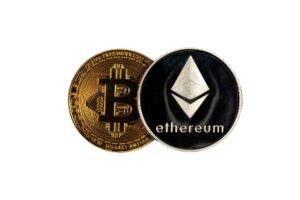Does the Ethereum Merge lead to more censorship? As the event inexorably approaches, criticism from the industry is mounting. In this point, Ether’s new consensus mechanism has systemic weaknesses, but at this very moment, attempts at censorship are already taking place under Proof of Work.
Ethereum Merge to Proof of Stake: Possible Censorship as a Threat to Freedom
A blockchain thrives on its neutrality and inviolability. If it gives these up, its advantages over classic digital payment methods such as a bank transfer, PayPal, or a credit card are lost.
The recently decided sanction by the Ethereum protocol Tornado.Cash has further consequences. CoinPro reports on the repercussions of state intervention for the repeated time.
In the crypto scene, a discussion about the possible censorship of Ethereum by the Merge has recently broken out. This changes ETH’s consensus mechanism from Proof of Work to Proof of Stake.
Several well-known figures are now warning of negative side effects from the switch to PoS. Gabriel Shapiro, an analyst at Delphi Digital, believes that a strong censorship of Ether is inevitable soon. The developers are planning to implement the Merge as early as September 19.
The US validators (which also include the very powerful Coinbase) will push for censorship at the protocol level.
Writes Shapiro on Twitter. So far, censorship at the application level has been considered most likely. This is easier to implement, but has nowhere near as negative an impact on a network as censorship at the protocol level.
What Does Censorship at the Protocol Level Mean?
Censorship at the protocol level describes a blockade of the core content of a protocol. In this case, this means, for example, preventing payments to or from certain users.
Shapiro describes why US validators, which often have industrial dimensions, will have difficulty preventing censorship:
They cannot help themselves by merely avoiding the issuance of blocks with US-sanctioned transactions, because under certain conditions they could be drastically punished as a result.
Instead, large players in the crypto industry would try to force all validators to implement the sanctions, according to Shapiro’s idea. This would allow them to avoid becoming the target of state penalties themselves.
Vitalik Buterin considers such censorship unlikely, as either almost 100 percent of the validators would have to join in, or censorship would have to become a core function of the blockchain, and there is no such implementation yet.
Does Proof of Work Offer more Protection against Censorship?
DiscusFish, co-founder of the mining pool F2Pool, draws attention to the advantages of Proof of Work. Censorship is much more difficult there. This is mainly based on being able to identify block producers.
While this is difficult with PoW, the option is much more realistic with PoS, as it is necessary to create the respective cryptocurrency there. The transparent blockchain allows you to trace its origin and thus reveal the identity of the holder.
Analyst Chris Blec also takes the side of PoW. He considers arguments to be unrealistic that suggest that principled validators would avoid the distribution of censored blocks.
Largest Ethereum Mining Pool Starts Censorship
The fact that such behavior is also possible with Proof of Work is demonstrated by the censorship of funds from the smart contract of Tornado.Cash by the largest Ethereum mining pool. With 261 terahashes, Ethermine has twice the hash rate of F2Pool in second place.
For several days, Ethermine has been following the sanctions of the US Department of Justice, although the company claims to be headquartered in Vienna. However, this has no decisive influence on the network, as the service provider is so far alone in this behavior.
You are currently seeing a placeholder content of X. To access the actual content, click on the button below. Please note that data will be passed on to third-party providers.
What is the Solution for Blockchain Censorship?
The basis of censorship is the transparency of the blockchain. This makes it possible to precisely trace which funds come from where. As a result, programs from well-known blockchain analysis firms such as Chainalysis can automatically discriminate against certain transactions.
Censorship can therefore be prevented by increasing privacy. A simple comparison can be made with cash. There is also no transaction history to be seen on a banknote. This ensures that every banknote remains equivalent and fungible.
Ethereum initiator Vitalik Buterin recognized this possibility and published the proposal to implement Stealth Addresses, which make it possible to keep NFTs confidential, shortly after the announcement of the recent sanctions.
This is not possible so far. The respective holders can be publicly identified. The term Stealth Addresses is already used by Monero as the best-known Privacy Coin. Supporters of the project have been warning about the current development for some time.
Due to the strong encryption of the Monero blockchain, it does not see itself exposed to the dangers of censorship.
Reading tip: Bitcoin fails due to fungibility? Edward Snowden criticizes BTC



